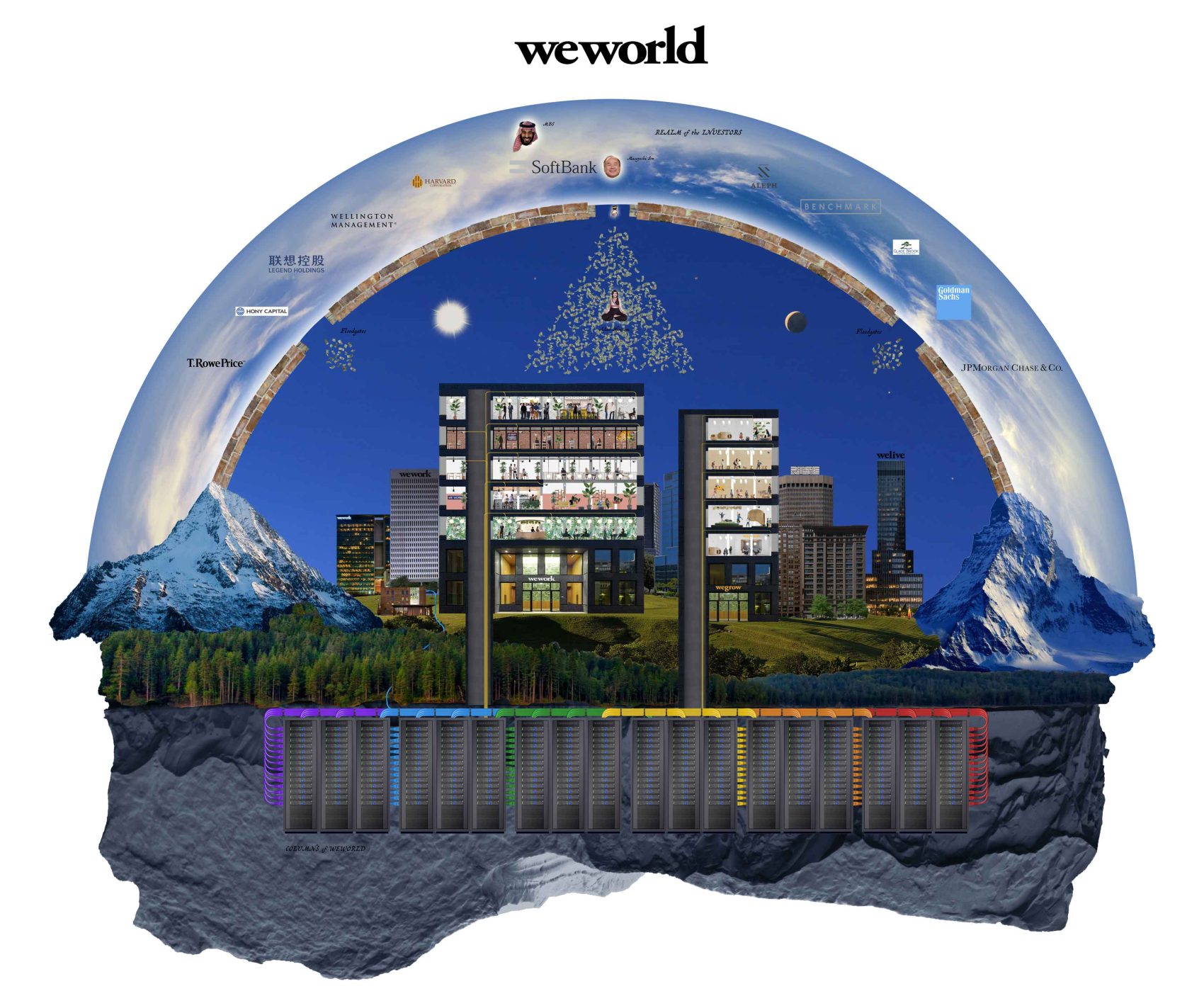TIM FELIX WEBER
WEWORK AND THE AGE OF APPRECIATION
WeWork Companies Inc. is a private enterprise based in New York City. Founded in 2010 as a start-up offering co-working spaces to other start-ups and freelancers it has now increasingly been made available to medium-sized businesses and large companies as well. WeWork pursues an aggressive growth strategy funded largely upon big investments by the Japanese Softbank Group. WeWork is currently valued at 47 billion USD. The company operates in over a 100 cities in 27 countries2 and has ventured into other businesses such as WeLive (co-living spaces), Rise by We (a gym with spa) and WeGrow (an elementary school). All these business ventures will be bundled under the newly formed The We Company.
We Work’s business model is renting spaces from landlords, building up the interior according to their corporate design and renting out the spaces to its “members”. The design and layout of WeWork spaces combines elements of the Californian start-up scene (bars, hang-out spaces, board games) and contemporary Scandinavian interior design. WeWork’s members have access to an internal social network. Following the company’s objective as a “community company”, social events and workshops are supposed to create a community within the members, the so-called “We Generation”.
In the present work, I try to trace the basic ideology and ambition of WeWork based on sections of selected interviews and speeches by WeWork Co-Founder and CEO, Adam Neumann. WeWork is a platform that wants to integrate many, if not all aspects of life. As such it is an ideal subject for testing Michel Feher’s theory of the Neoliberal Condition. Feher describes and deduces his theory in a lecture series called The Age of Appreciation: Lectures on the Neoliberal Condition, hosted by the Department of Visual Cultures and Forensic Architecture at the Goldsmiths University of London. He establishes underlying, interdependent principals of economics, psychology and sociality of our contemporary culture and their transformation through the past. In the following I will give a very brief summary of his theory.
Feher discusses two preceding eras or conditions to the Neoliberal Condition, the Augustinian Condition and the Liberal Condition. The Augustinian Condition dates back to the 5th century named after Augustine of Hippo. Its central psychology is one cultivating humility in light of accepting human sinfulness like lust, greed and pride. Its economy is one of generating god’s grace in order to produce charity. So the Augustinian Condition produces a sociality of gift, therefore the function of government is fostering humility.
The Liberal Condition emerges in the 18th century. Its psychology is one of maximising profit. Its economy is about generating prosperity by means of individual profit. More specific, the deployment of individual selfishness creates collective prosperity through the invisible hand of the market economy with the assumption that exchange and competition lead to growth. The three pillars of the liberal economy is first private property, second freedom to dispose of what one owns and third respect for contractural commitments. So its government is about promoting and regulating exchanges.
The Neoliberal Condition is born out of a project of liberal economists after the second world war to ward off the prediction of creeping socialism through technocracy and bureaucracy by restoring competition and entrepreneurship and thus saving classical liberalism. However the taken measures, led to the Neoliberal or financialized Condition. Its psychology is one of maximising self-esteem and credit. Its economy is about sustaining capital value through credit. Feher’s definition of credit is: Prospected profit minus doubts about that prospect. This leads to the ascent of the financial market. The sociality of that condition is based on sharing, so the neoliberal government is about facilitating sharing. The corresponding institution of each condition is the church for the Augustinian Condition, the market for Liberal Condition and for the Neoliberal Condition, the platform.
In the following two chapters each page is divided in three continuous columns. The main body of text occupies the middle column and contains transcribed sections of interviews with and speeches by Adam Neumann. The left-hand column contains transcripts featuring Adam Neumann or his wife Co-Founder of WeWork and CEO of WeGrow, Rebekah Paltrow Neumann or articles relating to the main body of text. The right-hand column contains comments by the author and tests Michel Feher theory of the Neoliberal Condition on statements from the main body of text.
Text
Collage
